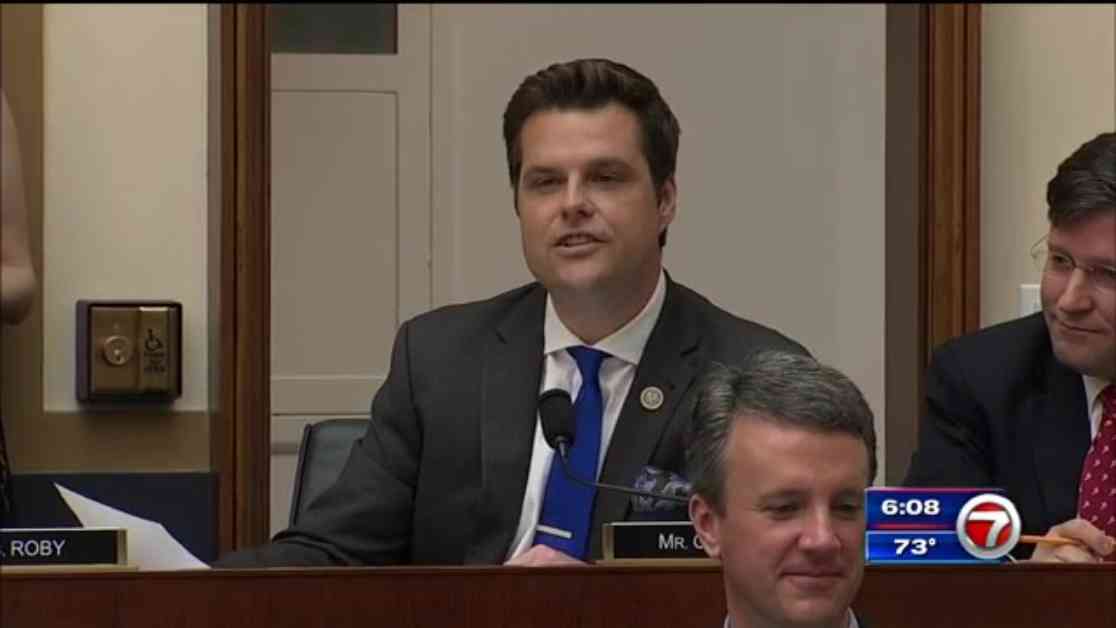House Rejects Democratic Efforts to Release Matt Gaetz Ethics Report
WASHINGTON, D.C. – In a dramatic turn of events, the House of Representatives has rejected the Democratic Party’s relentless push to unveil the long-awaited ethics report on former Rep. Matt Gaetz. The fate of this investigation into allegations of sexual misconduct remains shrouded in uncertainty, leaving many wondering about the true extent of the findings.
Democrats’ Push for Transparency
The House vote, which mostly followed party lines, saw Democrats urging for the public release of the ethics report despite Gaetz’s departure from Congress and withdrawal as a nominee for attorney general under the Trump administration. This move was met with resistance from the majority of Republicans, who argued that any probe into Gaetz should cease now that he is no longer a member of the House.
Rep. Tom McClintock of California stood out as the sole Republican supporting the effort to make the report public, emphasizing the importance of transparency in such cases. However, Speaker Mike Johnson warned against setting a precedent by releasing the report, adding to the growing tension surrounding this contentious issue.
Uncertain Future for the Report
As the Ethics panel convened to discuss the Gaetz report, no definitive decision was reached, leaving the document’s fate hanging in the balance. With only a few weeks remaining before the start of a new congressional session, the window of opportunity to shed light on these allegations is rapidly closing.
Rep. Sean Casten of Illinois, a vocal advocate for the report’s release, expressed concerns that blocking its publication would only serve to bury serious allegations of sexual misconduct. Despite Gaetz’s steadfast denial of any wrongdoing, the pressure to address these accusations continues to mount within the halls of Congress.
Divided Opinions and Lingering Questions
The rift between lawmakers on the Ethics committee has come to the forefront, with tensions running high over the handling of the Gaetz investigation. Rep. Michael Guest, the committee chairman, cited Gaetz’s departure from Congress and withdrawal from consideration as attorney general as reasons to reconsider the urgency of releasing the report.
However, the shadow of uncertainty looms large over this high-profile case, especially in light of Gaetz’s association with Joel Greenberg, who recently admitted to engaging in illicit activities involving underage girls. The intricate web of allegations, denials, and legal proceedings surrounding this investigation adds layers of complexity to an already convoluted situation.
As the debate rages on in the corridors of power, the fate of the Gaetz ethics report remains a contentious issue that underscores the challenges of holding elected officials accountable for their actions. The coming days will likely see further twists and turns in this ongoing saga, raising profound questions about the intersection of politics, ethics, and justice in the highest echelons of power.


